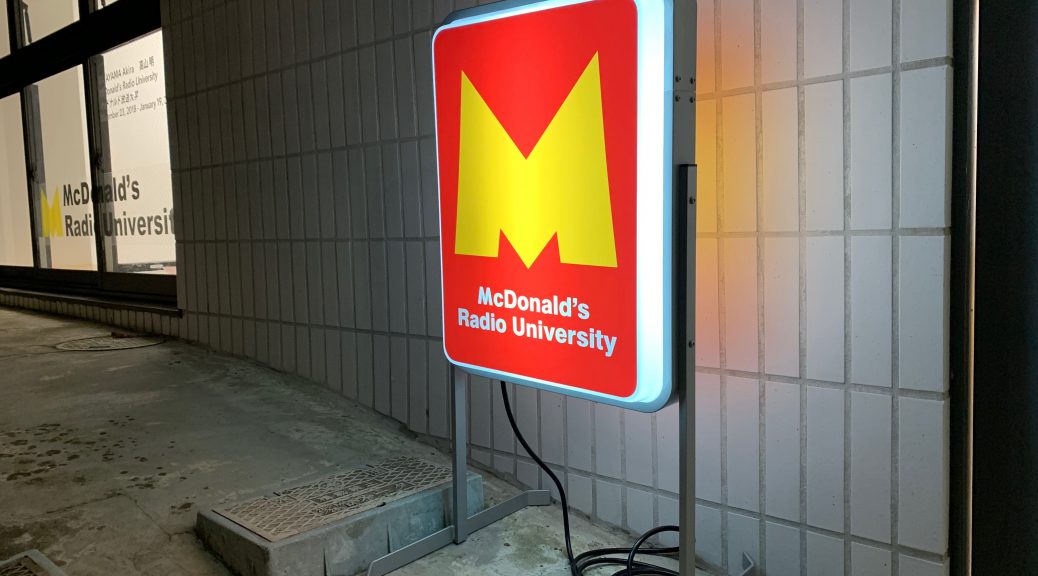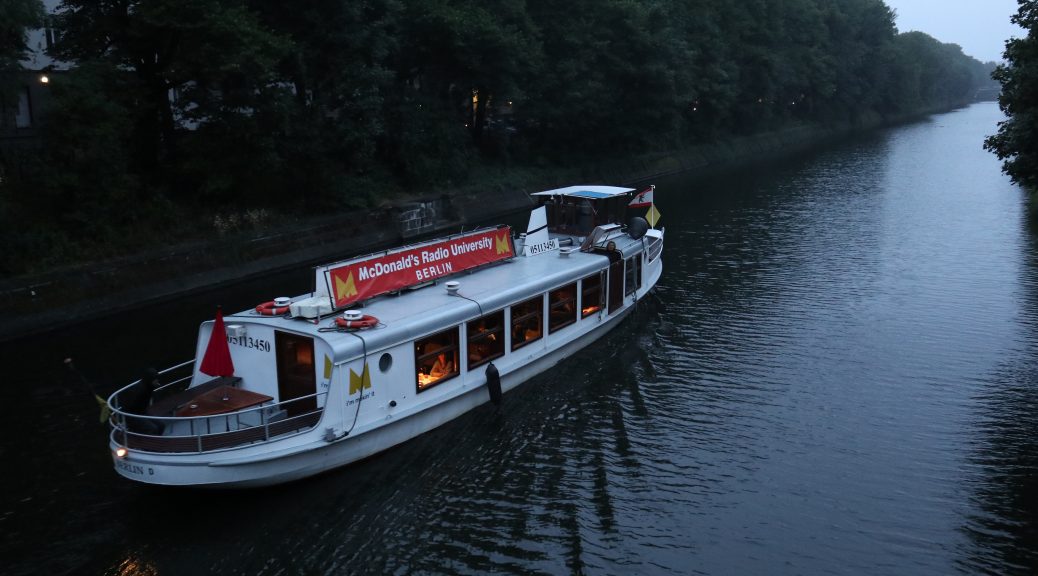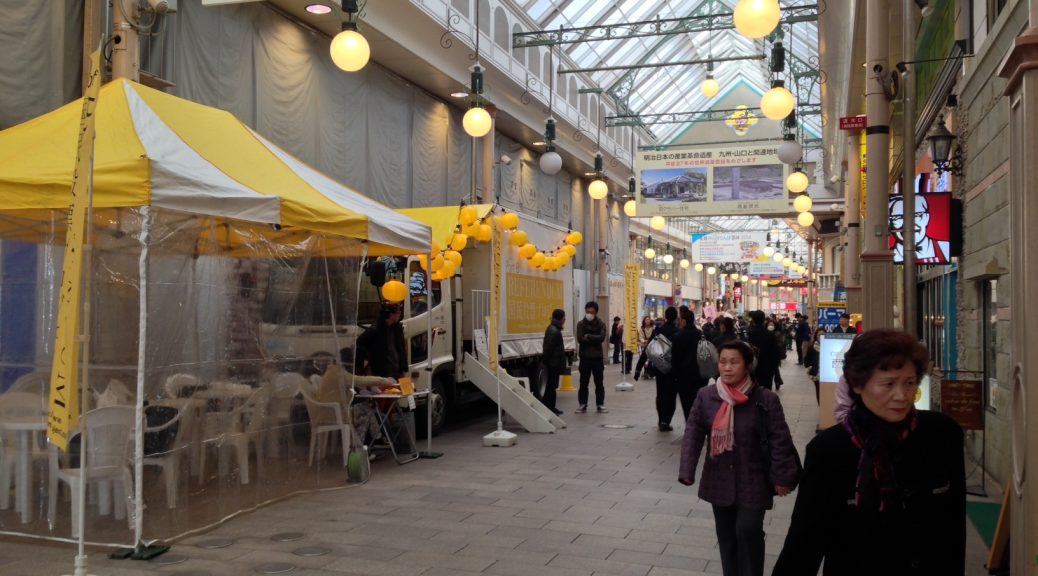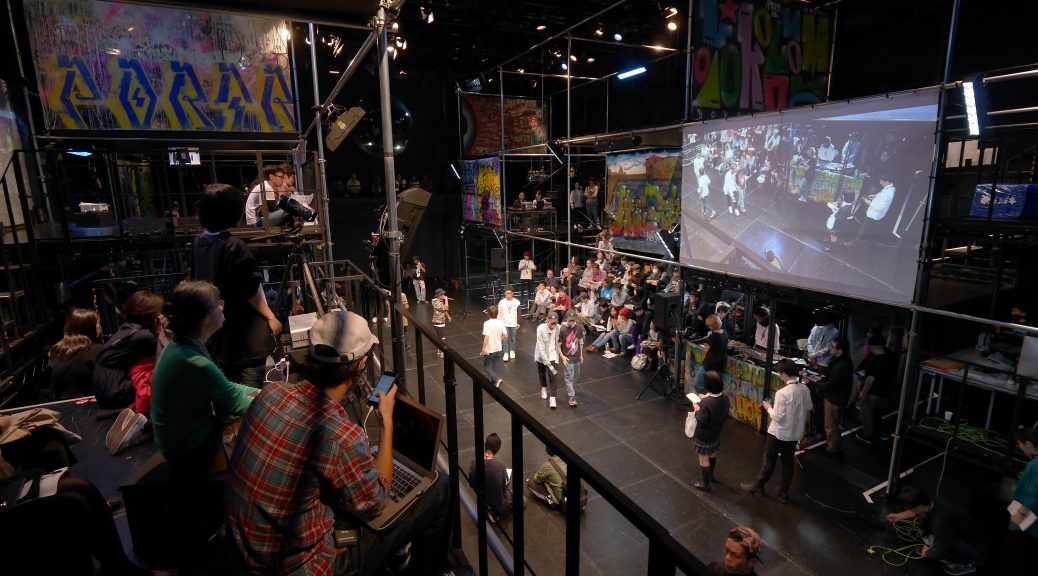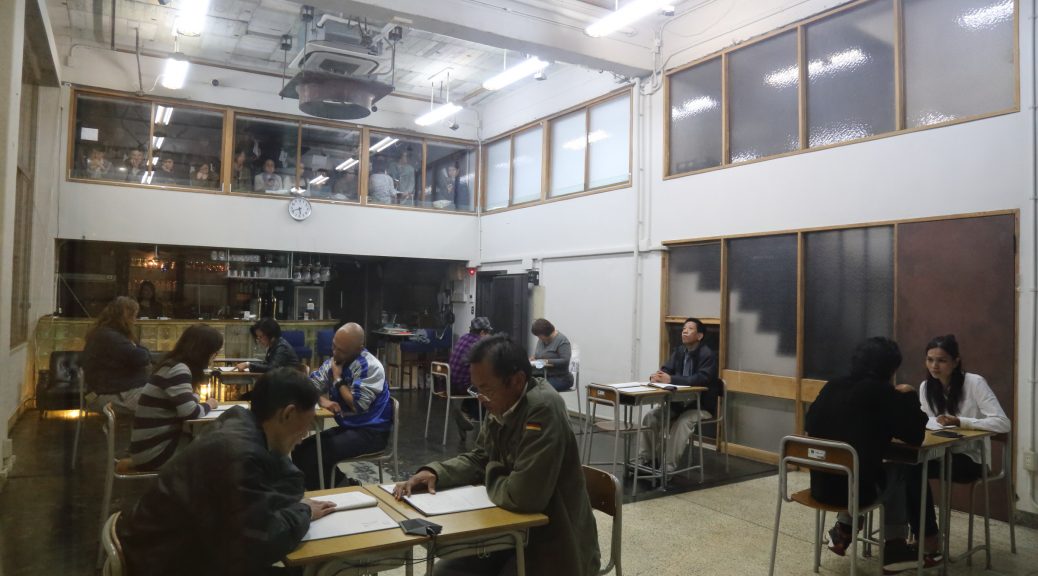Re-inquiring into migrating, changing Japan and the Japanese language
This installation was exhibited at the Yokohama Triennale 2014. Created out of research into Asian communities in Yokohama, it explores themes of the nature of Japan and the Japanese language.
The installation at the Yokohama Museum of Art featured the voices of people who, for a variety of reasons, had fled their homelands and come to Japan, either alone or with their families. The voices spoke in Japanese but it was the Japanese of refugees from Indochina. The work explores how language and communities are always shifting between migration and settlement, always on a journey to somewhere. At the end of the Triennale, the work itself then migrated from the Yokohama Museum of Art to Koganecho, where it transformed into a live installation.
The venue in Koganecho in Yokohama was created in the form of a classroom for learning Japanese. It became a place for encounters between Indochina refugees and day labourers living in Kotobuki. The installation paired the “immigrants” and “residents” together in the manner of Japanese language exchanges. Who is the teacher and who is the student? The roles were interchangeable. The “textbooks” were excerpts from Ray Bradbury’s Fahrenheit 451, the central motif for the Yokohama Triennale. The pairs read passages to each other in the style of a lesson drill. They then asked each other questions about the texts like a classroom conversation practice exercise. The participants arrived at their mutual memories using Japanese, though it may not be what we presume. On the second floor of the venue visitors could sit and watch the “lessons” through a glass window. Visitors were also given small transistor radios. Tuning these to certain frequencies allowed visitors to eavesdrop on the conversations happening at the classroom desks.
In this way, the live installation was both a kind of Japanese classroom experience but also simultaneously a performance of Fahrenheit 451. Through the medium of the Japanese language as something always migrating and changing, it brought together peers with alien voices: a transient, wandering commune and community.
“Yokohama Commune” Yokohama Triennale2014
